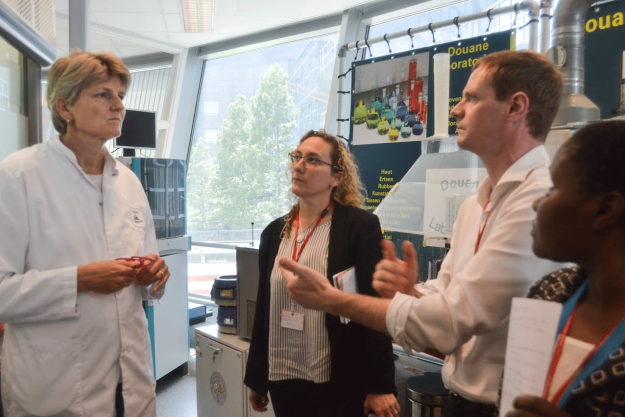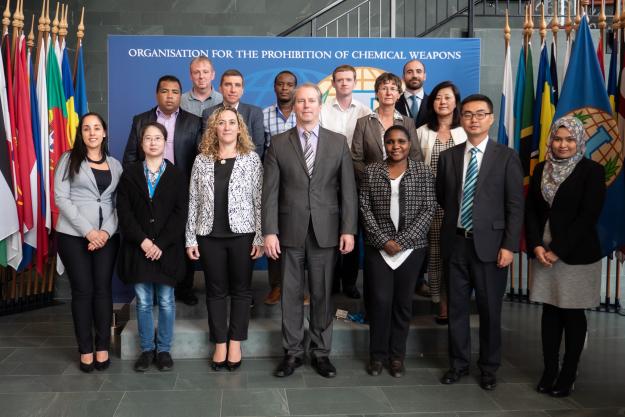
Participants at the inaugural course for analytical chemists supporting customs services
THE HAGUE, Netherlands – 12 July 2019 – To improve chemical transfer practices at national borders, the Organisation for the Prohibition of Chemical Weapons (OPCW) held an inaugural course for analytical chemists supporting customs services at the OPCW Laboratory in Rijswijk, Netherlands, from 8 – 12 July.
Head of the OPCW Laboratory, Mr Marc-Michael Blum, said in his opening statement: “Customs laboratories form the first line of defence in tackling illicit trafficking of chemicals. The need to identify chemicals – including those related to the Chemical Weapons Convention – by modern, state-of-the-art laboratory methods is of key importance for effective enforcement of laws and regulations on the transfer of chemicals.”
A group of ten experts representing countries from across five continents exchanged information regarding the adoption of good laboratory practices. They also gained skills in the detection and identification of chemicals under the Chemical Weapons Convention (CWC), including the recognition of chemical structures and their various properties.
The Dutch Customs Laboratory provided information on the best practices they employ to support the National Authority in monitoring chemical transfers.
Participants agreed that the course offered fresh perspectives on their efforts to implement the CWC and facilitated the adoption of new procedures and techniques for the analysis of chemicals under the Convention.
Attendees represented the following OPCW Member States: Argentina, Bulgaria, China, Costa Rica, Germany, Ireland, Luxembourg, Madagascar, Tanzania, and Zimbabwe.

Participants at the inaugural course for analytical chemists supporting customs services
Background
The Course for Analytical Chemists from Laboratories Supporting Customs Services was a part of OPCW’s activities to implement the Components of an Agreed Framework for the Full Implementation of Article XI: Economic and Technological Development, established by the decision of the Conference of States Parties in 2011 (C-16/DEC.10 dated 1 December 2011). Article XI prescribes the permitted international exchanges of scientific and technical information, chemicals and equipment.
As the implementing body for the Chemical Weapons Convention, the OPCW, with its 193 Member States, oversees the global endeavour to permanently eliminate chemical weapons. Since the Convention’s entry into force in 1997, it is the most successful disarmament treaty eliminating an entire class of weapons of mass destruction.
Over 97% of all chemical weapon stockpiles declared by possessor States have been destroyed under OPCW verification. For its extensive efforts in eliminating chemical weapons, the OPCW received the 2013 Nobel Peace Prize.
